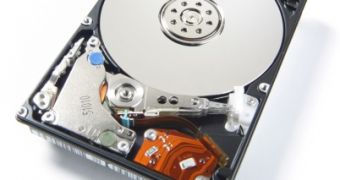It didn't happen to me or to my MacBook owning cat (in her dreams maybe), but as Retrodata wants us to believe, it happened to enough people that want to recover what it can be recovered from their damaged Seagate 2,5 inch SATA hard drives made in China and featuring the 7.01 firmware.
Duncan Clarke, the Retrodata chief, declared to Register Hardware "We're getting 20-30 times more failed drives of this kind than others".
As stated on the reghardware.co.uk website, Retrodata announced they've received these hard drive models in much greater numbers than any other type to work their magic on and rescue every bit of data they could. As it seems, the disk drives were physically affected due to a malfunction of the read/write heads that came into contact with the platters surface and caused serious scratches, a fact that in most cases will make any hard drive an unusable piece of junk.
Furthermore, as the company said, all the drives that had this kind of "injury" were inside Apple computers when the malfunction occurred. Being faced only with the Apple 2.5 inch model suffering this type of malfunction, Retrodata estimates that the Apple machines that could suffer from this critical manufacturing flaw all use laptop components. Therefore, the ones that could be directly affected by this flaw would be the MacBook and MacBook Pro owners, together with the ones that own a Mac Mini.
"We believe that any sizeable manufacturer would by this stage be aware of such a problem and issue a product recall notice, or an offer to have the drive exchanged for a suitable alternative at their own expense," said Duncan Clarke.
This type of problem can easily appear if your Apple MacBook or Mac Mini uses the Safe Sleep feature during the running of which one is not supposed to move the machine until it finishes whatever it has to do. But, as you might very well know, most people will almost never do this, a fact that could explain the problem from Apple's point of view.
But there still remains the Mac Mini side of the problem (if there are any Mac Mini hard drive disks affected at all). Who would throw a Mini around his/her desk? I wouldn't, so how can one explain the mentioned flaw in this case? The only thing that could explain all this would be an official response from Apple (which I think you're already waiting for after reading this article).

 14 DAY TRIAL //
14 DAY TRIAL //